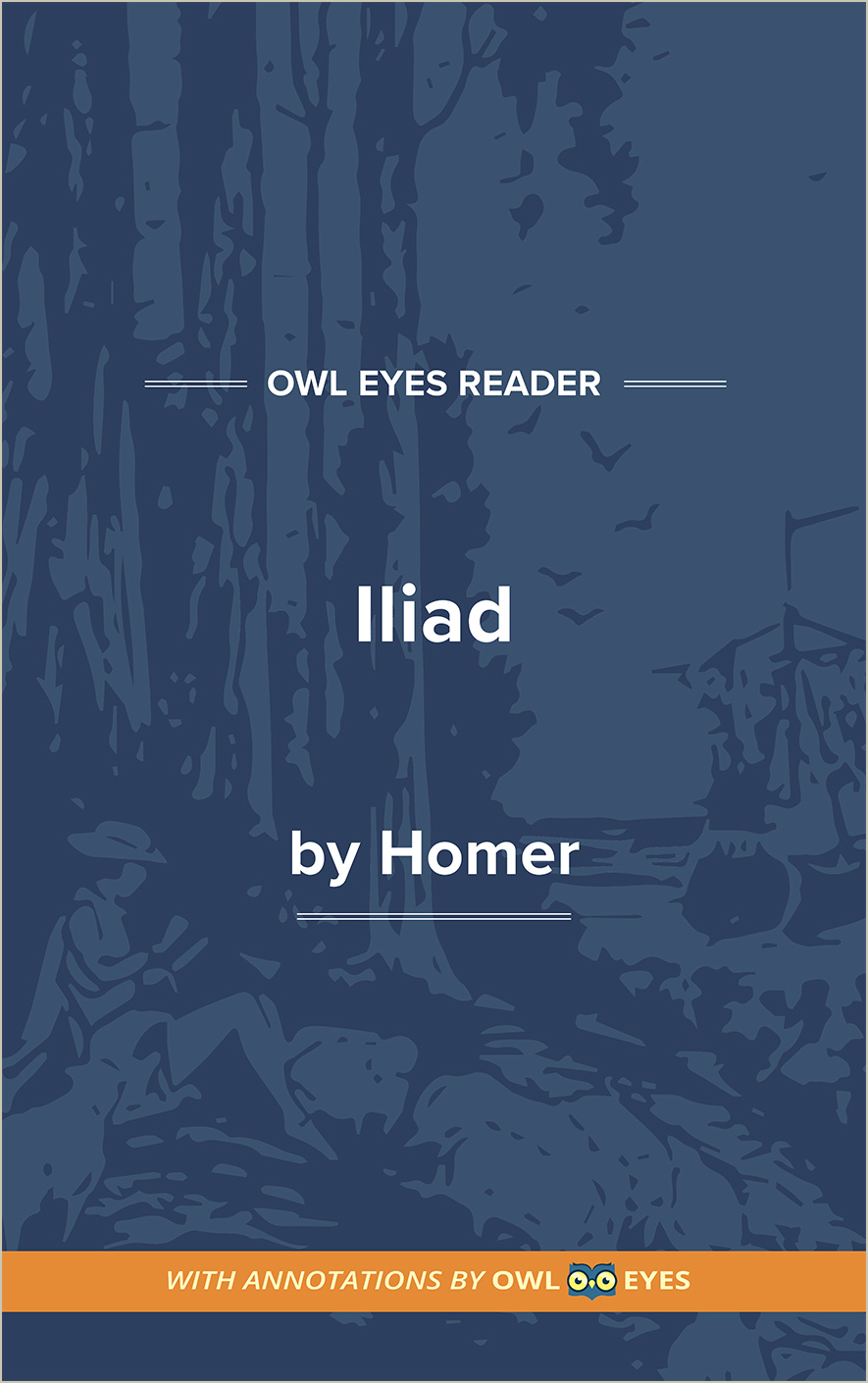Analysis Pages
Mythology in Iliad
Ancient Greek Mythology: Greek mythology consists of a collections of myths that concern the gods, heroes, and people of ancient Greece. These myths were shared not only as entertainment but also as a means of passing along beliefs, rituals, and teachings. Many of the Greek gods serve as personified elements of the natural world, which likely represents a way for ancient Greeks to better understand the world around them. The mythology of ancient Greece has had a profound influence on Western culture, literature, and rhetorical traditions and continues to persist in the popular imagination to this day.
The Judgment of Paris: Many conflicts in ancient Greek myth start with the meddling of gods in mortal affairs. The ten-year struggle known as the Trojan War is no exception. According to myth, Zeus held a banquet to celebrate the union of Peleus and Thetis, who would later become parents to Achilles. All gods and goddesses were invited to the banquet except Eris, the goddess of discord. When Eris arrived at the banquet and was turned away, she threw down the Golden Apple of Discord addressed “to the fairest.” The apple sparked a vanity-fueled dispute between Hera, Athena, and Aphrodite, who all claimed to be the fairest. When the goddesses asked Zeus to judge who should receive the apple, he commanded Hermes to lead them to the Trojan prince Paris, known for being an exceptionally fair judge. When Paris could not decide between the women, each offered him a bribe. He was swayed by Aphrodite’s offer to grant him the most beautiful woman in the world, Helen of Sparta, and awarded her the apple. Menelaus of Sparta responded by sending an army (the Achaeans) to retrieve his wife and Athena and Hera, outraged over their loss, sided against the Trojan forces. This formed the basis for the Trojan War.
Mythology Examples in Iliad:
Book I
🔒"lame Vulcan ..." See in text (Book I)
"Ulysses..." See in text (Book I)
" Sminthe...." See in text (Book I)
"SING, O GODDESS..." See in text (Book I)
"Olympus..." See in text (Book I)
"Juno..." See in text (Book I)
"Jove..." See in text (Book I)
Book II
🔒"dread Orcus and of the river Styx..." See in text (Book II)
"Hercules..." See in text (Book II)
"Argus..." See in text (Book II)
Book III
🔒"Pygmies..." See in text (Book III)
Book IV
🔒"Panic, Rout, and Strife..." See in text (Book IV)
Book V
🔒"Titans...." See in text (Book V)
"helmet of Hades..." See in text (Book V)
"Enyo..." See in text (Book V)
"Gorgon..." See in text (Book V)
"robe which the Graces had woven for her..." See in text (Book V)
"Ganymede..." See in text (Book V)
Book VI
🔒"Chimaera..." See in text (Book VI)
"Sisyphus..." See in text (Book VI)
"naiad nymph ..." See in text (Book VI)
Book VIII
🔒"Gorgo..." See in text (Book VIII)
Book IX
🔒"Erinyes..." See in text (Book IX)
Book XI
🔒"centaurs..." See in text (Book XI)
"Chiron..." See in text (Book XI)
"their real father, Neptune..." See in text (Book XI)
"Discord..." See in text (Book XI)
Book XII
🔒"demigods..." See in text (Book XII)
Book XIV
🔒"Danae the daintily-ancled daughter of Acrisius, who bore me the famed hero Perseus..." See in text (Book XIV)
"slept with one another without their dear parents knowing anything about it..." See in text (Book XIV)
"Jove imprisoned great Saturn..." See in text (Book XIV)
"him who was at once her brother and her brother-in-law..." See in text (Book XIV)
Book XV
🔒"I fastened two anvils on to your feet, and bound your hands in a chain of gold which none might break, and you hung in mid-air among the clouds..." See in text (Book XV)
Book XVIII
🔒"the Linus-song..." See in text (Book XVIII)
Book XIX
🔒"Folly, eldest of Jove's daughters, shuts men's eyes to their destruction..." See in text (Book XIX)
Book XXI
🔒"the slayer of Argus..." See in text (Book XXI)
"lets you kill them whenever you choose..." See in text (Book XXI)
Book XXII
🔒"for he brings fire and fever in his train..." See in text (Book XXII)
Book XXIII
🔒"Oedipus..." See in text (Book XXIII)
Book XXIV
🔒"Cassandra..." See in text (Book XXIV)
"they forgave not the wrong done them by Alexandrus in disdaining the goddesses who came to him when he was in his sheepyards, and preferring her who had offered him a wanton to his ruin...." See in text (Book XXIV)

